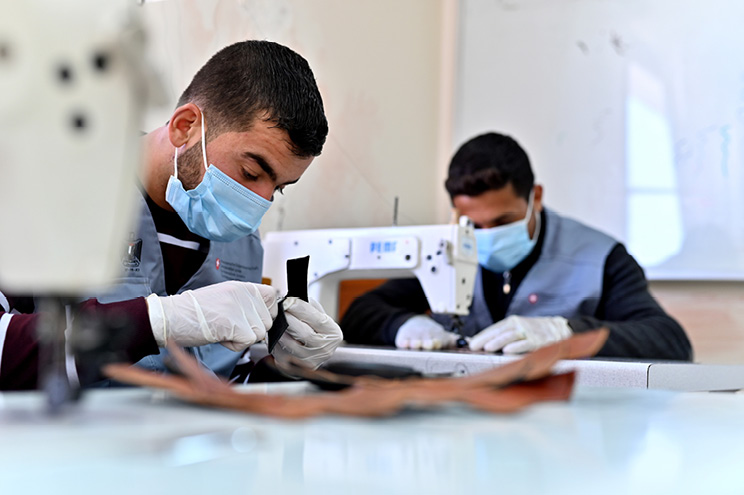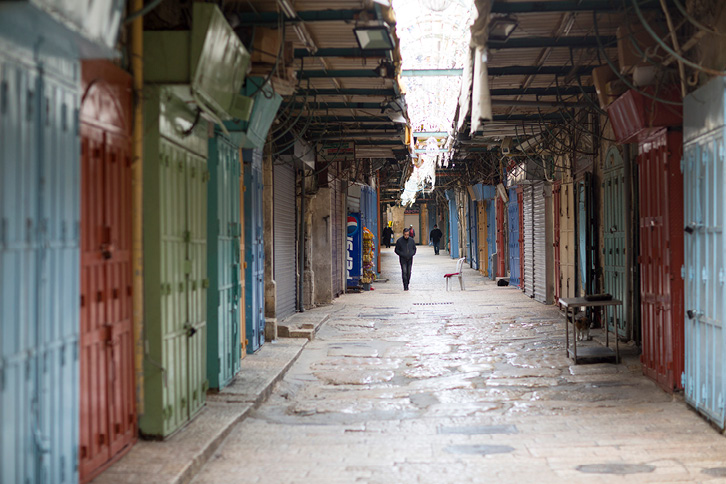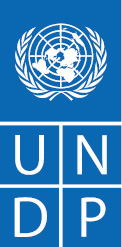The COVID-19 pandemic is the defining global health crisis of our time and the greatest challenge the world has faced since World War Two. We have now reached the tragic milestone of 1.41 million deaths, and the human family is suffering under an almost intolerable burden of loss.
But the pandemic is much more than a health crisis; it is also an unprecedented socioeconomic crisis. Stressing every one of the countries it touches, it is creating devastating social, economic, and political effects that will leave deep and longstanding scars. Extensive lockdowns, adopted to reduce the spread of the virus, restrict by necessity freedom of movement and, in the process, freedom to enjoy many other human rights. Over 1.4 billion children are affected by school closures. Every day, people are losing jobs and income, with no way of knowing when normality will return. Countries such as the State of Palestine, that are heavily dependent on tourism, have empty hotels and deserted sites. According to estimates by the International Labour Organization (ILO), the equivalent of 345 million full-time jobs were lost globally in the third quarter of 2020 due to the pandemic. Many of those hardest hit were young people.

Observing the crisis and its impact through a human rights lens puts a focus on how it is affecting people on the ground, particularly the most vulnerable among us. UNDP’s report titled “Human Development Perspectives COVID-19: Assessing the impact, envisioning the recovery,” highlights that human development is on course to decline this year for the first time since 1990. Declines in fundamental areas of human development are being felt across most countries – rich and poor – in every region. This is not counting other significant effects, for instance, in the progress towards gender equality. The negative impacts on women and girls span economic matters – earning and saving less and greater job insecurity – reproductive health, unpaid care work, and gender-based violence.
Today, the UN system’s full capacity is mobilized, including the socioeconomic strengths of over 40 UN Development System entities. UNDP was assigned as the technical lead in the UN’s socioeconomic recovery, alongside the health response, led by WHO, and the Global Humanitarian Response Plan.
Drawing on our experience with other outbreaks, as well as our long history of working with the private and public sectors, UNDP is helping countries to urgently and effectively respond to COVID-19 as part of its mission to eradicate poverty, reduce inequalities, and build resilience to crises and shocks.

In the Palestinian state, repeated lockdowns and restrictions associated with the spread of the COVID-19 virus have deepened already-existing multidimensional vulnerabilities. The Palestinian Monetary Authority (PMA) estimated in April 2020 that the COVID-19 crisis would lead to at least a 2.7 percent decline in public revenues and a 4.5 percent increase in unemployment, where the unemployment rate is already high at 31 percent overall and 38 percent among youth. GDP is estimated to contract between 5.1 and 7.1 percent, the largest annual contraction of the economy since reliable statistics began in 1994.
Although the Palestinian government’s preemptive containment measures have contributed to preventing a rapid outbreak, the mitigation of potential socioeconomic repercussions is as important as protecting public health.
As such, UNDP has leveraged its extensive presence and global and regional networks across the humanitarian and development sectors to build the resilience of the Palestinian people by effectively preparing for, responding to, and recovering from the COVID-19 crisis. Our approach is nestled firmly within the overall UNDP’s programmatic framework of “transformative resilience” that places at its core national ownership and leadership, self-reliance, and Palestinian identity.
In partnership with the Palestinian government and the international community, we have linked our short-term COVID-19 response with longer-term initiatives to ensure sustainability and reprogrammed existing cash-for-work/dignified-jobs projects to strengthen the health sector and basic service delivery. In the health sector, we provided more than 942 medical staff, including doctors, nurses, and lab technicians. We provided protective equipment, conducted training sessions, and raised awareness about COVID-19 within the community. In addition, UNDP scaled up medical waste interventions by procuring two microwaves to treat medical waste, as there are currently no properly functioning treatment devices of sufficient capacity in Gaza; and assisted in a medical-waste-management training program for 3,200 Ministry of Health personnel, including doctors, nurses, medical laboratory specialists, and cleaners.

We are strengthening business resilience post-COVID-19 by supporting the operationalization of a national micro-, small-, and medium-enterprise (MSME) help desk that will provide nonfinancial services to test and streamline MSME recovery and resilience packages, hence strengthening the national economy and labor force. We are partnering with universities or start-up incubators to solicit innovative solutions through the Hack the Crisis initiative, reduce misinformation, provide academic counseling, and enhance e-learning.
Our response is designed to help decision makers look beyond recovery, towards 2030, making choices and managing complexity and uncertainty in four main areas: governance, social protection, green economy, and digital disruption.
Governments and societies are facing unprecedented policy, regulatory, and fiscal choices as they act to save lives and set a course for a sustainable future. The choices made today, if made well, could be the tipping points that transform our societies and our planet for the better. A forward-looking response to COVID-19 could end an era where one-third of all food produced is wasted while one in ten people goes hungry, where ten times more is spent on fossil fuel subsidies than on renewable energy, and where more than two billion people live in fragility, conflict, or violence. It could transform the lives of those who were out of school, out of work, offline, and off the grid, even before the virus spread.
COVID-19 has brought to the surface deeply rooted and sometimes overlooked inequalities. In this context, COVID-19 is giving us the opportunity to consider once again the benefits that the human rights-based approach to policies, program planning, and program delivery can provide in addressing the vulnerabilities of some marginalized people.


